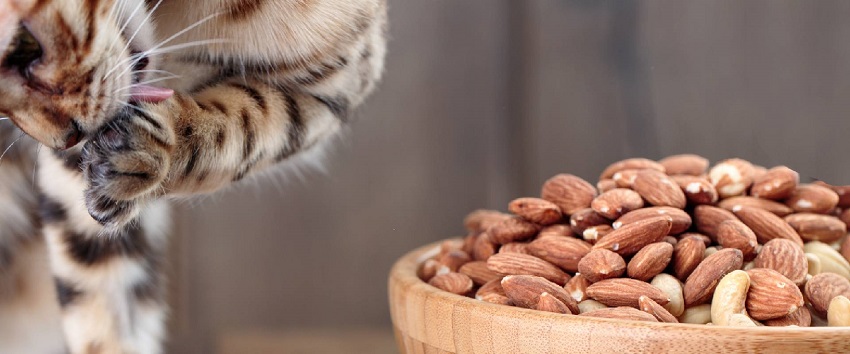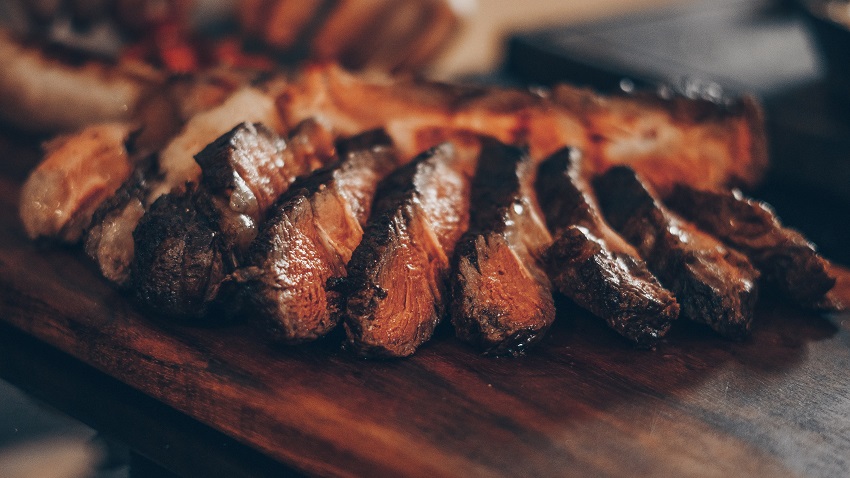
27 Jul Can Cats Lick Almonds? Unraveling the Feline-Almond Enigma
As a passionate SEO and senior copywriter, I understand the significance of producing top-quality content that captivates readers and enhances search engine rankings. Today, we delve into a peculiar question: Can cats lick almonds? While seemingly straightforward, the answer might surprise you, and we’ll explore this fascinating topic with a conversational tone, keeping it simple and engaging throughout. This article is provided by fruitnfood.com
The Curiosity Behind Cats and Almonds
Cats are curious creatures, always exploring their environment and displaying quirky behaviors. One of the intriguing behaviors that some cat owners have noticed is their feline friends showing an interest in almonds. You might have caught your cat sniffing or even attempting to lick an almond lying around your home. But before you let your cat indulge in this peculiar activity, it’s crucial to know whether it’s safe for them or not. Discover can cats eat pistachios.
The Almond Conundrum: Are Almonds Safe for Cats?
The short answer is no; cats should not consume almonds. While almonds themselves are not inherently toxic to cats, they can still pose several risks and potential health issues. Almonds belong to the Prunus genus, which includes other stone fruits like cherries, peaches, and plums. These fruits contain compounds like amygdalin, which can break down into cyanide when ingested. Though the concentration of amygdalin in almonds is relatively low, it is still a cause for concern when it comes to feline health.
Potential Risks of Almond Consumption in Cats
1. Cyanide Poisoning
As mentioned earlier, the amygdalin in almonds can release cyanide when metabolized. While a single almond might not contain a lethal amount, it can still lead to mild symptoms of cyanide poisoning in cats. These symptoms include vomiting, diarrhea, lethargy, difficulty breathing, and even more severe neurological issues.
2. Choking Hazard
Almonds are small and hard, which makes them a choking hazard, especially for small cats or kittens. If a cat accidentally swallows an almond whole or even in large pieces, it can obstruct their airway, leading to a life-threatening situation.
3. High Fat Content
Almonds also have a high-fat content, which can be problematic for cats. Their digestive systems are not adapted to process large amounts of fat, leading to digestive upset, pancreatitis, and obesity if almonds are consumed regularly.
Safer Alternatives for Feline Treats
As responsible pet owners, it’s essential to prioritize our feline companions’ health and well-being. Instead of offering almonds, consider these safer and enjoyable alternatives as occasional treats:
1. Cooked Meat
Cooked and unseasoned meat like chicken or turkey can be a delightful treat for your cat. Ensure it’s free from bones, seasoning, and additives that might harm them.
2. Catnip
Many cats are attracted to catnip, which can be given in the form of toys or sprinkled on scratching posts to provide mental stimulation.
3. Commercial Cat Treats
Numerous commercially available cat treats are specially formulated to be safe and enjoyable for our feline friends.
Observing Your Cat’s Behavior
Understanding your cat’s behavior and identifying any changes can be crucial in ensuring their well-being. If you suspect that your cat has ingested almonds or any other toxic substance, be vigilant for signs of distress or poisoning. In such cases, it’s best to seek immediate veterinary attention.
Conclusion
While cats may display interest in almonds due to their natural curiosity, it’s important to keep them away from this seemingly innocent treat. Almonds can pose various risks to feline health, including the potential for cyanide poisoning, choking hazards, and digestive issues. Instead, opt for safer alternatives like cooked meat, catnip, or commercial cat treats to delight and engage your beloved feline companions. Remember, a healthy and happy cat is a joy to have around, so let’s prioritize their well-being above all else.
So, let’s cherish our quirky cats, protect them from potential hazards, and make informed decisions that promote their longevity and happiness.

Sorry, the comment form is closed at this time.